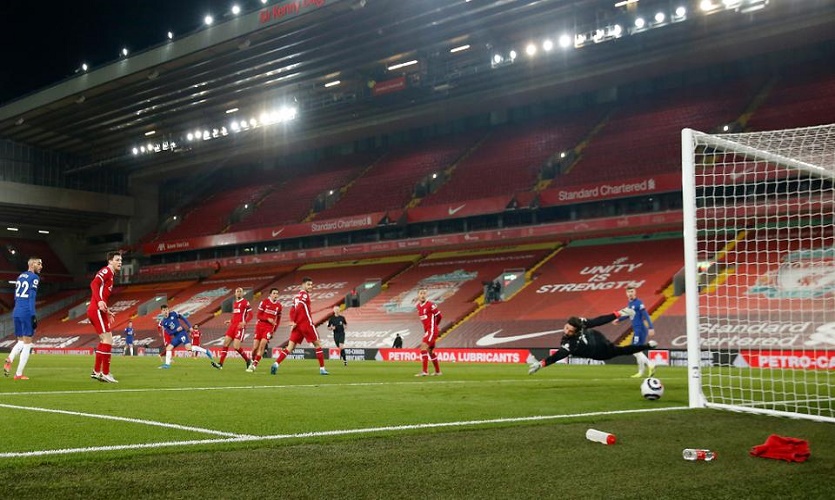How did the absence of fans affect the Premier League?

|
As the dust settles on the 2020/21 English Premier League season, Dr Gillian Cook and Dr Francesca Champ from LJMU's School of Sport and Exercise Sciences, examine how the absence of fans affected the campaign. Fans were not allowed in English Premier League (EPL) stadiums for the majority of the 2020/21 season due to the COVID-19 pandemic. The absence of fans has coincided with a significant reduction in the 'home advantage' with a 10% drop in the number of home matches won in the EPL during the 2020/21 season (just under 50%) when compared with the 2019/20 season (just under 60%). The lack of spectators during the pandemic has allowed for a real-life psychological experiment into the impact of fans on performance. The term 'twelfth man/woman' is commonly used in football to refer to the fans and recognises the potential for supporters to influence the outcome of a match. During each game fans engage in ritualistic chanting, singing, and applauding in support of their own team. Typically, we observe a positive impact of these fan behaviours in increasing the arousal, motivation, and competitive drive of players, resulting in enhanced performances. On average, home teams score 37% more goals than away teams, and the team with the largest crowd is likely to score around 0.45 more goals than their opposition. Moreover, the presence of fans during home matches contributes to an enhanced sense of 'we-ness' and belonging that extends to everyone involved with the team. This collective and shared identity unifies players in pursuit of victory against their opposition (the enemy) and creates a sense that players are connected to something greater than themselves. In summary, some players and teams really thrive off the energy that fans bring, just think of some of Cristiano Ronaldo's best performances! Alongside this, away teams may have received a boost from the absence of fans. During the 2020/21 season, away team players have not been exposed to negative fan behaviours such as booing and jeering, therefore decreasing the number of external performance distractions. Such distractions can be detrimental to performance as they require players to expend mental energy filtering out irrelevant stimuli, therefore, the absence of fans will have increased away players attentional focus on the game. The season-long experiment has now come to an end. From a Merseyside perspective, we have seen Everton - who struggled at home - roared on by their fans to victory in their first game back at Goodison. Indeed, the fans were awarded the man of the match award, truly recognising them as the twelfth man. Meanwhile, across Stanley Park, the return of 10,000 fans at Anfield inspired Liverpool to clinch a third-placed finish and all-important Champions League spot on the final day. Dr Gillian Cook and Dr Francesca Champ, School of Sport and Exercise Sciences. You can hear Dr Gillian Cook discussing the return of fans with BBC Radio Merseyside here (at 1:11). |


